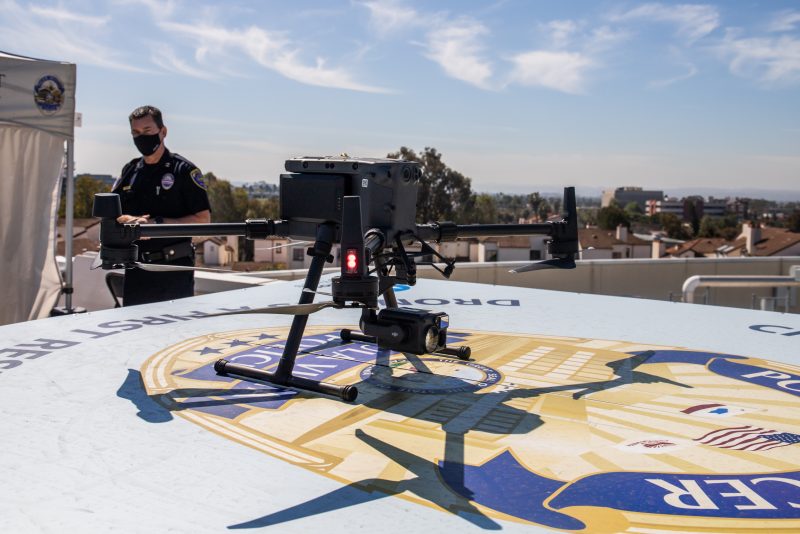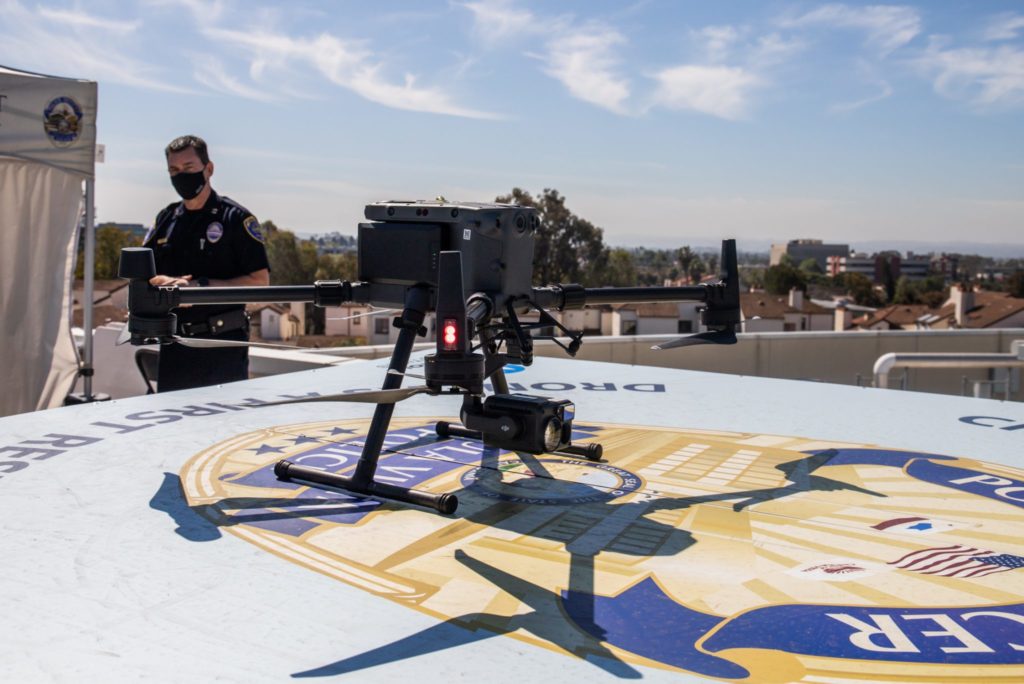
More and more, Chula Vista is beginning to feel like the backdrop of an M. Night Shyamalan series – a place where officials paint a rosy picture, but something more sinister is lurking beneath the surface.
Officials there have been hyper-focused on promoting their drone program to news outlets across the country, and have considered that promotion – and the tours they provide of their headquarters – synonymous with being transparent about those efforts.
But PR and transparency are two very different endeavors that are often at odds with each other.
As Sofía Mejías Pascoe laid out in a story this week, despite touting its transparency, Chula Vista PD – like other police agencies in the county that use drones – doesn’t actually make its footage public. Public records experts aren’t sure that’s kosher.
As Wired noted this week, Chula Vista celebrated becoming the first so-called “Welcoming City,” a designation meant to signal inclusivity toward immigrants. Yet the city is also “one of the nation’s most surveilled cities, where the police department uses license plate readers, drones, and body cameras to track residents and has explored facial-recognition technology.”
Norell Martinez, who lives in Chula Vista near a police station and whose parents moved here from Tijuana, only learned about the drone program by seeing devices flying over her backyard. Martinez told us she’s concerned for her family’s privacy and worries about how the drone program will impact communities of color.
In other words, the drones don’t project a very “welcoming” image.
So how have Chula Vista officials responded to the growing surveillance concerns? Not great!
Police Chief Roxana Kennedy had assured residents that a forum on the city’s license plate reader program was “truly a time to have open dialogue” – then officials promptly refused to answer attendees’ questions about the program.
Over and over when it comes to surveillance in Chula Vista, officials are saying one thing and doing another. Welcoming people doesn’t tend to involve monitoring their every move, or sending their information to immigration officials without residents’ knowledge. Having an open dialogue with residents means just that – not providing a space for people to shout into a void, airing legitimate questions that are never meaningfully addressed.
What VOSD Learned This Week
Jesse Marx & co. continue to do absolutely astounding reporting revealing the extent of San Diego’s surveillance infrastructure. In a stunning investigation this week, he laid out how the city of San Diego withheld documents from Congress on the extent of – and big concerns about – its facial recognition program. Jesse came on the podcast this week to discuss the story.
***
Will Huntsberry pieced together interviews, lawsuits and a county audit to paint a picture of financial mismanagement and potential fraud within the powerful nonprofit Volunteers of America.
***
Lots of significant institutions around the region are in the midst of a unionization push or recently unionized, including the Children’s Museum, High Tech High and, as contributor Jackie Bryant reports, Sycuan casino workers. The casino has brought in a firm to persuade workers – during mandatory meetings – not to join a union.
***
The Housing Commission’s fears that it might leave rent relief money on the table appear to be materializing.
What I’m Reading
Line of the Week
“I want to sleep in, I want to binge ‘Couples Therapy,’ I want to eat cheese for lunch. I want to do it all without another person talking to me or touching me or asking me for something.” – If you are in a position to give this gift to the mom in your life, please do. Happy Mother’s Day!
